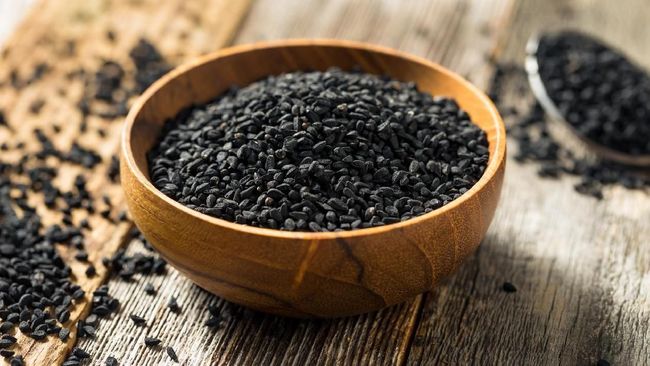Thymoquinone: The Miracle Compound in Habbatusauda You Need to Know About
Table of Contents
Ingredientarys - Habbatusauda, or better known as black cumin, is a type of plant that has long been used in traditional medicine, especially in the Middle East and South Asia. Habbatusauda has the scientific name Nigella sativa.The seeds of this plant are often utilized because they contain various active compounds that are beneficial to health.
This name comes from the scientific classification of plants used by botanists to identify and categorize various types of plants.
- Nigella: This is the genus or genus of this plant. The genus is at a higher taxonomic level than the species.
- Sativa: Represents the species of the genus Nigella. Species is the most specific level of taxonomy to identify a type of plant.
Habbatusauda, or black cumin, is indeed rich in nutrients and active compounds that contribute to its various health benefits. Here are some of the key ingredients in habbatussauda:
- Thymoquinone: This compound is the main component in habbatussauda and is often referred to as the “king of drugs”. Thymoquinone has powerful antioxidant, anti-inflammatory, and antibacterial properties. It plays an important role in protecting cells from damage, reducing inflammation, and fighting infection.
- Essential fatty acids: Habbatusauda contains omega-3 and omega-6 fatty acids, which are important for heart, brain, and skin health. These fatty acids help lower cholesterol levels, reduce the risk of heart disease, and keep the skin moisturized.
- Protein: Habbatusauda is a good source of protein, which is important for the growth and repair of body tissues.
- Vitamins and minerals: Black cumin seeds contain a variety of vitamins, such as vitamin B complex, vitamin C, and minerals such as calcium, iron, and zinc. These nutrients are important for various bodily functions, including energy production, bone health, and the immune system.
- Antioxidants: Apart from thymoquinone, habbatussauda also contains various other antioxidants, such as flavonoids and carvacrol. Antioxidants help protect the body from free radical damage.
- Fiber: Habbatusauda contains fiber which is good for digestion, helping to maintain a healthy digestive tract and prevent constipation.
Here are some of the benefits of habbatussauda for skincare:
- Acne relief: Its antibacterial and anti-inflammatory properties are highly effective in fighting acne-causing bacteria and reducing inflammation in the skin.
- Brightens skin: The antioxidants in habbatussauda help fight free radicals that can damage the skin and cause premature aging. In addition, its vitamin E content also contributes to skin brightening.
- Moisturizes the skin: The essential fatty acids in habbatussauda help to keep the skin moisturized, resulting in softer and more supple skin.
- Removes acne scars: Habbatusauda can help speed up the skin regeneration process, so acne scars fade faster.
- Prevents premature aging: The antioxidants in habbatussauda protect the skin from free radical damage, so signs of aging such as wrinkles and fine lines are reduced.
- Maintains scalp health: Habbatusauda is also useful for treating scalp problems such as dandruff and hair loss.
Habbatusauda has great potential in the world of skincare. However, each person has a different skin type, so the results obtained can also be different. If you want to try habbatusauda for skin care, you should consult an expert first.


Post a Comment